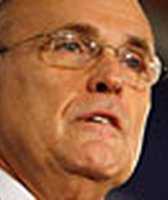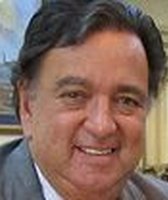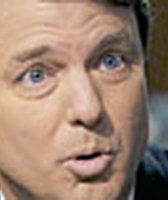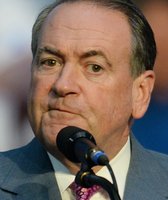Stand up for the facts!
Our only agenda is to publish the truth so you can be an informed participant in democracy.
We need your help.
I would like to contribute
SUMMARY: The wide range of backgrounds in the presidential field has got the candidates sparring over who has the most experience, but historians point out that resumes don't always tell you much about how someone might perform in office.
This President of the United States gig is pretty unique.
It's a job that looks after the interest of 301 million people and an economy of $13-trillion.
Yet there are few prerequisites. You don't need to speak Spanish or be proficient in Excel, just be native born, older than 35, and able to raise gobs of cash.
Of the 43 people who have held the job, all were white men and more than two-thirds were trained in law. Almost all had extensive public service records before they were elected.
But their backgrounds vary enough to make it clear there is no sure path to the White House. Sixteen were governors, eleven were generals, nine were teachers. There was a tailor, a mining engineer, a newspaper editor.
"What are voters looking for?" said Don Ritchie, associate historian in the U.S. Senate Historical Office. "It's hard to say."
Story continues below the chart: Larger version

This uncertainty might explain the wide range of applicants in the 2008 presidential race. Plenty of public service and legal experience. But there's also a prisoner of war, a former First Lady, a TV reporter, an actor and a minister.
These broad backgrounds have led to an open, and often discourteous, discussion among the candidates about whose got the right stuff, and who doesn't.
"The problems for the Democratic candidates -- Hillary and Barack and John Edwards -- is they've never run anything," said Republican frontrunner Rudy Giuliani. "They've never run a city. They've never run a state. They've never run a business."
Actually, Edwards started his own law firm in 1993, and his medical malpractice firm made lots and lots of money. Clinton, too, was a partner in a law firm, responsible, one presumes, for participating in some management decisions. As First Lady even, Clinton had real duties, overseeing the health care plan — which failed — and a personal staff of 20 with access to White House staff and the president himself.
But Giuliani's comment, echoed by Mitt Romney, highlights a larger pattern of presidential politics: U.S. Senators rarely get elected. Clinton and Obama are currently in the senate. Edwards served a term. Joe Biden has been a senator for 35 years. Chris Dodd for 28. On the Republican side, John McCain has been in the senate for 21 years.
Only two candidates have made the direct jump from the senate to the presidency. One was Warren G. Harding in 1920. Ask a historian how that turned out.
The other was John F. Kennedy in 1960. About 50 senators have tried since.
"The system has tended to work against the stellar legislators," said Ritchie, author of the soon to be released book Electing FDR: The New Deal Campaign of 1932. "They're easier to campaign against because they've cast all these votes. A governor doesn't have to commit to a vote that can later haunt a campaign."
Sean Wilentz, a history professor at Princeton University, said he doesn't think voters hold senatorial experience against candidates. This year, it might even help.
"People want confidence that you can do the job," said Wilentz, author of the 2005 book The Rise of American Democracy. "My guess is Washington experience matters more to voters than it ever has since Watergate, when we've had a number of governors who ran as outsiders. This is not a year where being an outsider means a great deal."
Giuliani is something of an anomaly, running as an experienced hand, without Washington credentials. Biden has tried to exploit this gap in Giuliani's resume by claiming the former mayor of New York has the least experience in the field.
That's a tough case to make. Wilentz said being mayor of the largest city in the nation exempts him from charges that he only has local experience.
"It's no ordinary city," Wilentz said.
But the city's mayors have never before marched to the White House. What makes Giuliani different? Credit 9/11, said Stanley Renshon, a political science professor at City University of New York.
"He was the only person at the epicenter of an attack on American soil," said Renshon, author of the forthcoming book The Bush Doctrine and the Future of American National Security. "Rudy was the one guy in charge and he had to make a lot of life and death decisions in the moment. That's pretty much what you hire a president for, and he has a taste of it."
The trick of experience is understanding how it will shape presidential success.
"What counts as experience is variable," said Fred Greenstein, professor of politics at the Woodrow Wilson School at Princeton University. "Did Bill Clinton's executive experience in a small state matter? And did it matter that Eisenhower had the experience of being Supreme Commander in Europe?"
The relatively thin resume of Abraham Lincoln, a lawyer who served one term in Congress and lost a senate race, hardly matches his revered performance in office. Just as the impressive work histories of John Quincy Adams, Herbert Hoover, or Richard Nixon didn't guarantee successful presidencies.
"Being President of the United States is a bigger job than you can imagine," Wilentz said. "It's hard to evaluate how they will respond to pressure and their resumes don't necessarily help. Ultimately, it's about leadership. And the best way to look for that is examine how they respond to pressure. You don't always find that during the campaign."
Our Sources
Times interview with Don Ritchie, associate historian in U.S. Senate Historical Office.
Times interview with Stanley Renshon, City University of New York.
Times interview with Fred Greenstein, Woodrow Wilson School, Princeton University.
Times interview with Sean Wilentz, History Department at Princeton University.
USA Today, Courtroom Master Faces Biggest Jury, July 28, 2004
The Almanac of American Politics, 2006, 2004, eds.





































